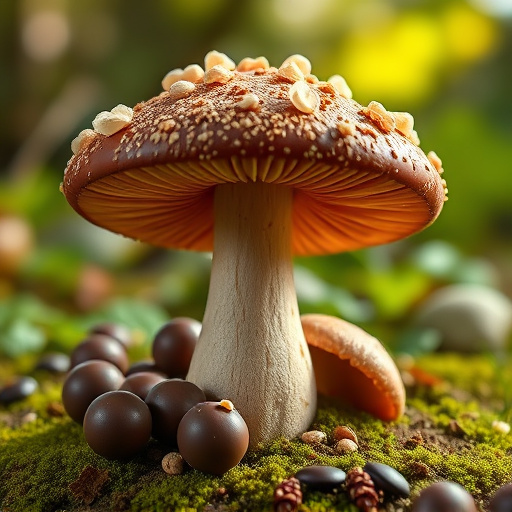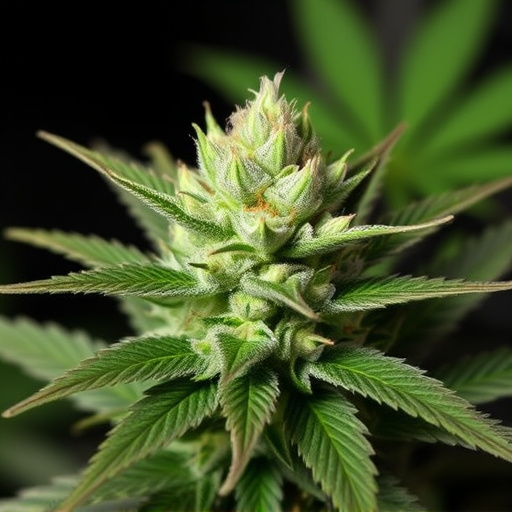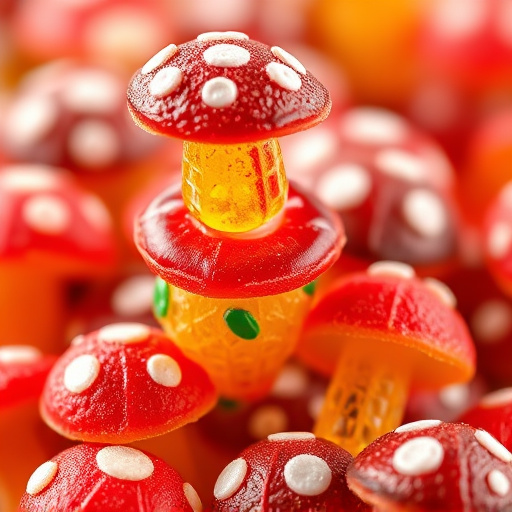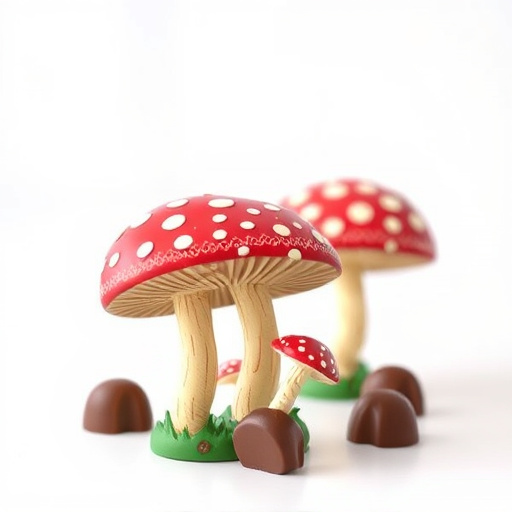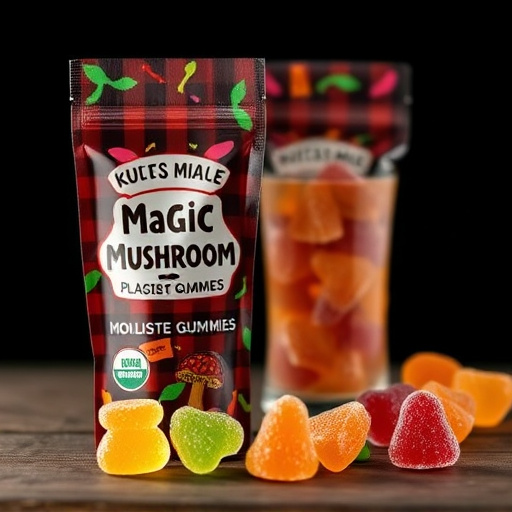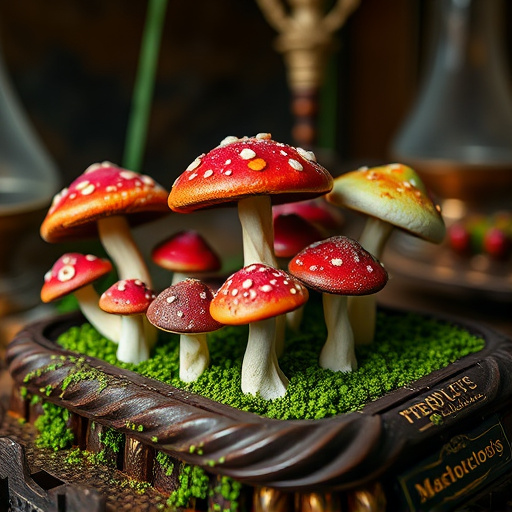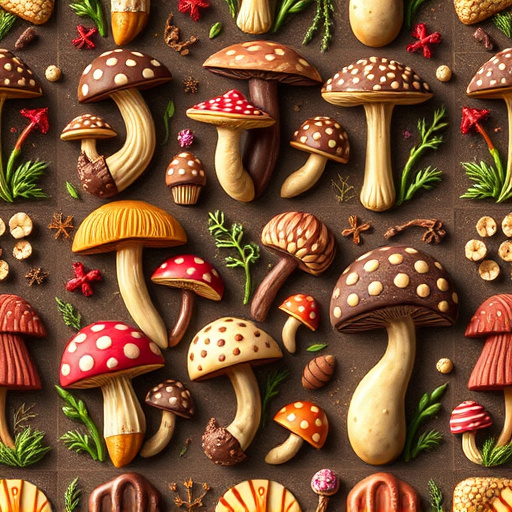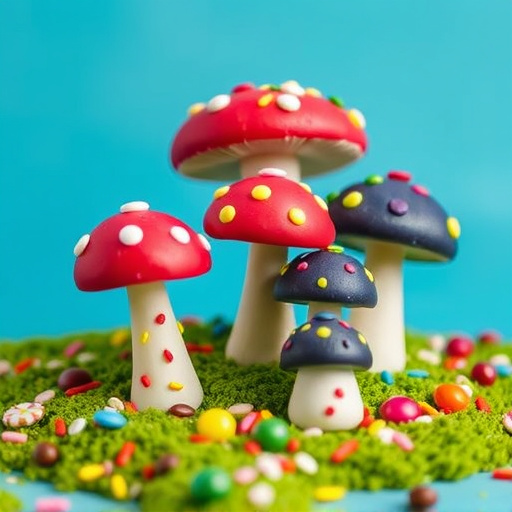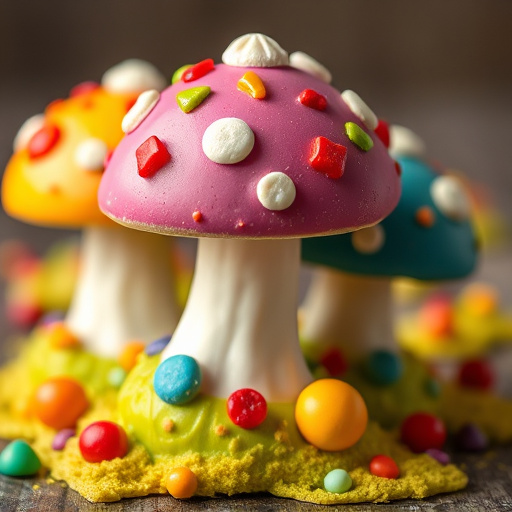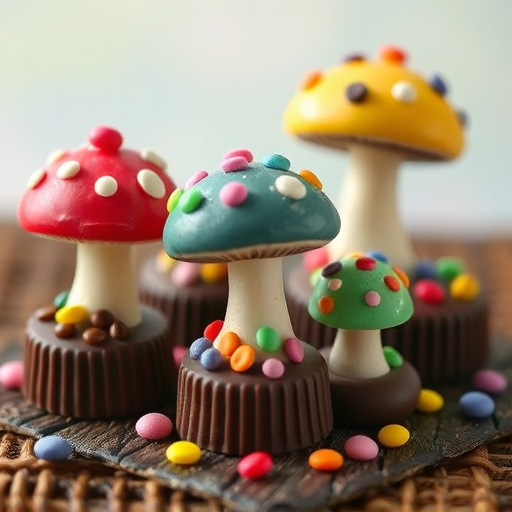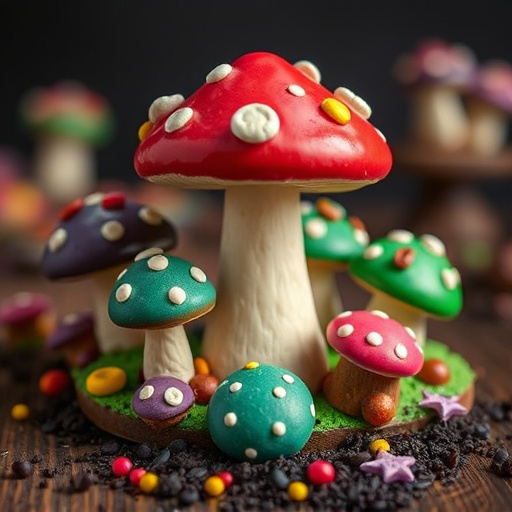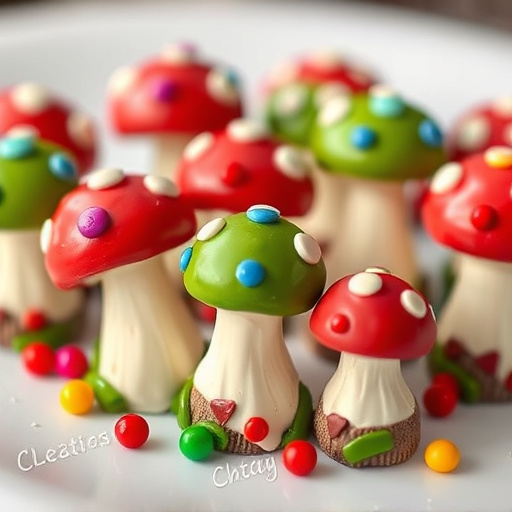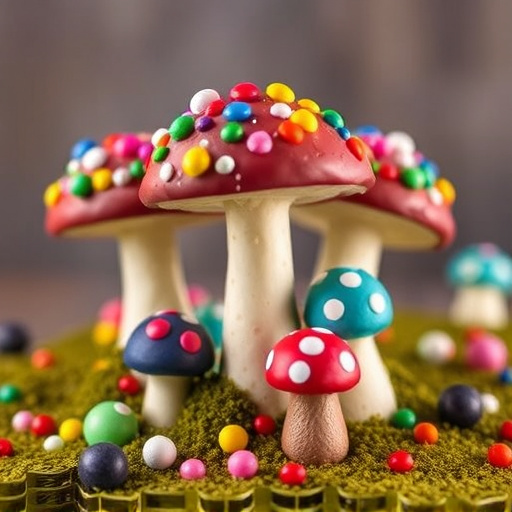Magic mushroom chocolates, infusing psilocybin from mushrooms into delicious treats, represent a novel and growing trend in wellness, especially for trauma recovery. Backed by science, these chocolates enhance brain serotonin receptor interaction, making psilocybin delivery more palatable than traditional psychedelic therapies. Microdosing them shows promise in processing distressing memories, promoting neuroplasticity, and improving emotional regulation, sleep quality, and anxiety reduction for PTSD sufferers. However, significant side effects like altered perceptions necessitate professional supervision and prior healthcare provider approval to ensure safety.
Discover the powerful potential of Magic Mushroom Chocolates as a holistic approach to trauma recovery. This comprehensive guide explores how these innovative treats combine the therapeutic benefits of psilocybin with the convenience and palatability of chocolate. We delve into the science behind microdosing, its role in healing trauma, and the compelling evidence supporting its use. Learn about potential side effects, safety precautions, and why Magic Mushroom Chocolates are gaining recognition as a game-changer in mental health care.
- Understanding Magic Mushroom Chocolates: A Comprehensive Look
- The Role of Microdosing in Trauma Recovery
- Potential Benefits, Side Effects, and Safety Precautions
Understanding Magic Mushroom Chocolates: A Comprehensive Look
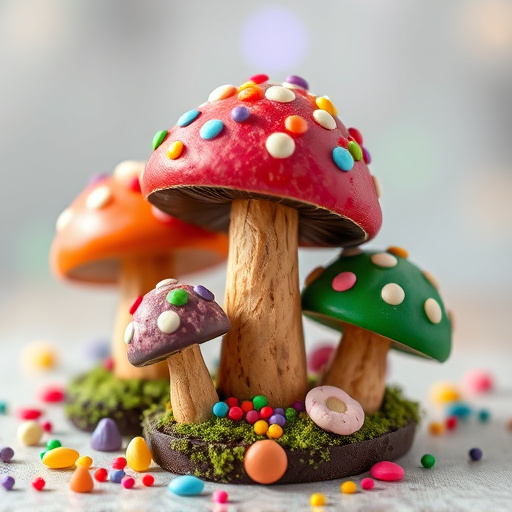
Magic Mushroom chocolates represent a novel and increasingly popular approach in the realm of wellness and therapeutic treatments, particularly for trauma recovery. These chocolates infuse the active compounds found in psilocybin mushrooms, known for their potent psychological effects, into delicious chocolate bars or treats. More than just a tasty indulgence, magic mushroom chocolates offer potential therapeutic benefits backed by emerging scientific research.
Understanding their composition is crucial when considering Magic Mushroom Chocolates for Trauma Recovery. The key compound, psilocybin, is a naturally occurring psychedelic that interacts with serotonin receptors in the brain, leading to altered states of consciousness and heightened sensory perception. When incorporated into chocolates, psilocybin is delivered in a controlled manner, allowing for a more manageable and potentially therapeutic experience compared to traditional psychedelic therapies. The addition of chocolate enhances absorption and makes the process more palatable, making it an innovative way to explore the potential benefits of psilocybin for addressing trauma-related issues such as anxiety, depression, and PTSD.
The Role of Microdosing in Trauma Recovery
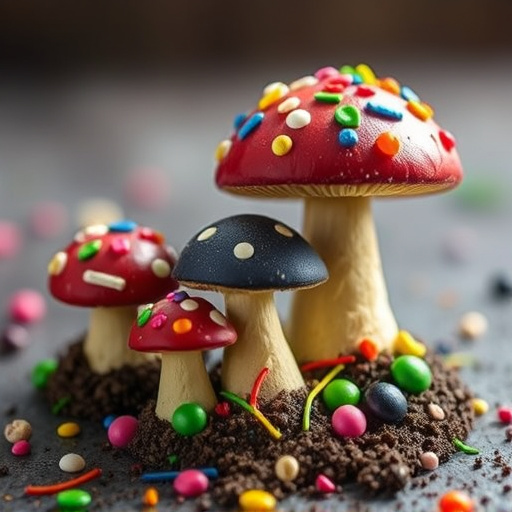
Microdosing, involving the consumption of tiny amounts of psychedelic compounds like those found in magic mushroom chocolates, has gained attention as a potential therapeutic approach for various mental health conditions, notably trauma recovery. Research suggests that microdosing can help reduce symptoms of post-traumatic stress disorder (PTSD) by enhancing emotional processing and resilience. During traumatic events, the brain’s ability to process and integrate memories can be disrupted, leading to persistent distressing memories and flashbacks. Magic mushroom chocolates, when used under controlled conditions and with professional guidance, may facilitate a deeper connection between the mind and body, allowing individuals to confront and reprocess traumatic memories in a safe environment.
This process is believed to promote neuroplasticity, enabling the brain to form new neural connections and modify existing ones. As a result, individuals experiencing trauma recovery might find improved emotional regulation, reduced anxiety, and better sleep quality. The microdosing protocol for magic mushroom chocolates is typically strict and individualized, ensuring a controlled experience that maximizes therapeutic benefits while minimizing potential risks. This approach offers a promising alternative or adjunct to traditional trauma therapy methods, potentially revolutionizing the way we address psychological scars left by traumatic events.
Potential Benefits, Side Effects, and Safety Precautions
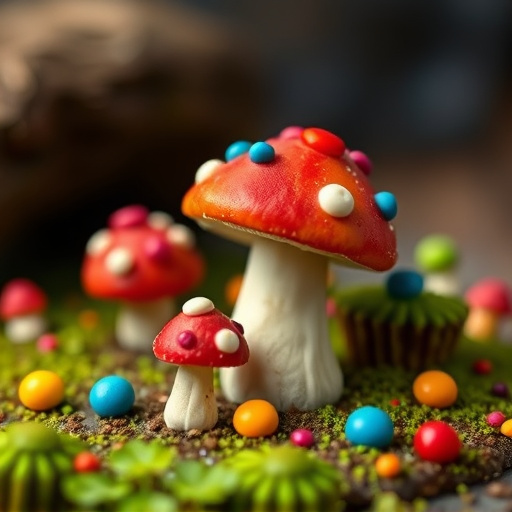
Potential Benefits
Magic mushroom chocolates, infused with psilocybin, have garnered attention for their potential therapeutic effects, especially in trauma recovery. Research suggests that controlled doses of this compound can help reduce anxiety and depression, improve mood, and facilitate profound emotional healing. Many users report experiencing heightened creativity, increased mindfulness, and a deeper connection to nature after consumption. These chocolates offer an alternative approach to traditional mental health treatments, providing a unique and potentially more accessible way to explore consciousness and process traumatic memories.
Side Effects and Safety Precautions
While magic mushroom chocolates may hold promise for trauma recovery, it’s crucial to acknowledge potential side effects. Common experiences include altered perception, hallucinations (especially at higher doses), anxiety, paranoia, and nausea. These effects can be intense and are not suitable for everyone, particularly those with pre-existing mental health conditions or a history of trauma. Safety precautions are paramount: always consume under professional supervision in a safe, controlled environment. It’s essential to inform your healthcare provider before trying this method, as it may interact with other medications or exacerbate certain conditions.
Magic mushroom chocolates, as a novel approach to trauma recovery, offer a promising path forward. With microdosing showing potential benefits in reducing anxiety and enhancing well-being, these treats could provide an accessible and palatable way to explore psychedelic-assisted therapy. However, ongoing research and strict adherence to safety guidelines are crucial to unlocking their full potential while mitigating risks. For those seeking alternative healing methods, magic mushroom chocolates may just be the key to unlocking a world of improved mental health and resilience.
